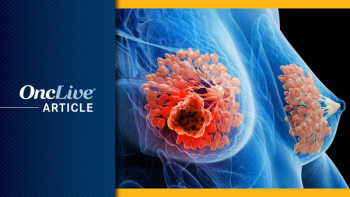
Dr. Tolaney on Escalating Versus De-Escalating Therapies in HER2+ Breast Cancer

Sara M. Tolaney, MD, MPH, discusses escalating versus de-escalating therapies in HER2-positive breast cancer.
Sara M. Tolaney, MD, MPH, associate director of the Susan F. Smith Center for Women’s Cancers; director of Clinical Trials, Breast Oncology; and senior physician at Dana-Farber Cancer Institute, as well as an assistant professor of medicine at Harvard Medical School, discusses escalating versus de-escalating therapies in HER2-positive breast cancer.
Generally, the field has utilized clinical risk as a means to tailor therapy for patients with HER2-positive disease, says Tolaney. Those who could have more nodal involvement or are at a greater risk of recurrence are considered as having high-risk disease, whereas patients with smaller node-negative tumors are at a lower risk. The field has learned that risk can be assessed based on response to preoperative therapy, as well. For example, patients who have residual disease after HER2-directed preoperative therapy are at a higher risk for recurrence, meaning escalating therapy may be beneficial. However, patients who achieve pathological complete response (pCR) after preoperative therapy may be able to de-escalate therapy. There are studies actively looking at these strategies.
One example is the phase 2 CompassHER2-pCR trial, which includes an arm examining patients who achieve a pCR to a less chemotherapy-intensive regimen, adds Tolaney. Patients receive a taxane with trastuzumab (Herceptin) and pertuzumab (Perjeta; HP) and if they achieve a pCR, then they can continue on trastuzumab/pertuzumab in the adjuvant setting with no further need for chemotherapy. However, if they have residual disease, they can escalate therapy.
In the COMPASS-RD trial, patients with residual disease who might typically receive ado-trastuzumab emtansine (T-DM1; Kadcyla), could be randomized to T-DM1 in combination with tucatinib (Tukysa). These are 2 different strategies: the de-escalation approach and escalation approach, concludes Tolaney.






































